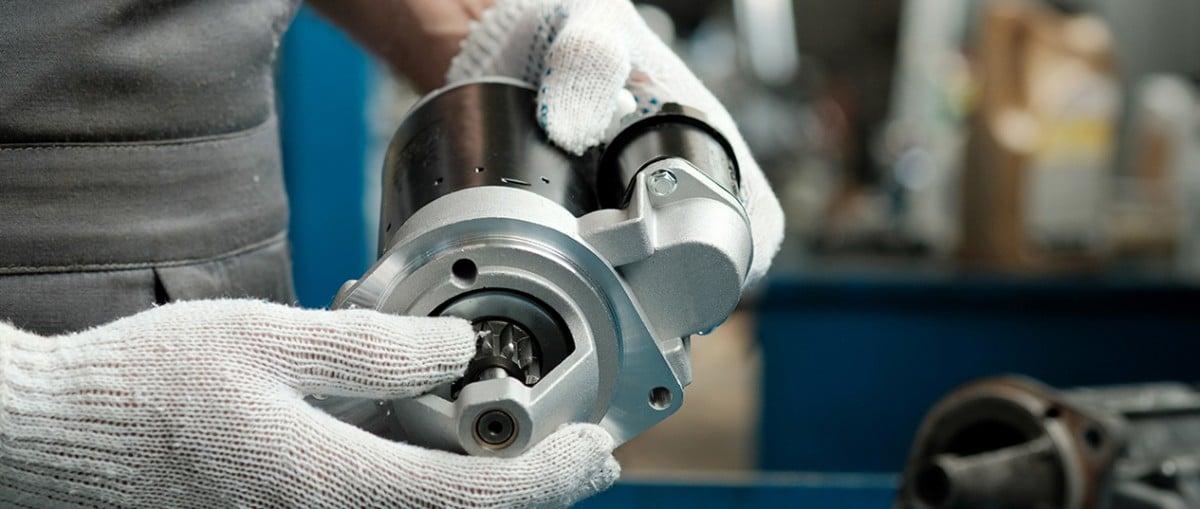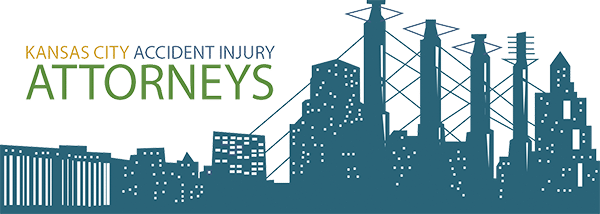
Kansas City Defective Auto and Truck Part Lawyers
Holding manufacturers liable when defective vehicle parts cause accidents in MO and KS
Car and truck manufacturers have a duty to ensure their products are safe for the drivers and passengers who use their vehicles. Simply put, the manufacturers are in the best position to ensure their auto and truck parts are safe. When manufacturers, distributors, and retailers sell their vehicles, all parts of the vehicles need to work. If the brakes fail, the electric system stalls, the fuel line erupts, or the airbags malfunction, the occupants of the vehicle may be seriously injured or die. Defective car and truck parts can also injure other drivers, passengers, and pedestrians on the roadways.
At Kansas City Accident Injury Attorneys, our product liability lawyers hold manufacturers accountable when they place their profits before your safety. We work with product engineers, safety experts, and others to show that car and truck parts were defective, and the defects caused the accident that left you injured. We demand compensation for all your financial and personal losses. We have obtained substantial settlements and verdicts for many clients injured through the fault of others.
How can we help?
- What types of car defect cases do you handle?
- What truck parts are most likely to have defects?
- What is a car or truck product recall?
- Who is liable for a defective car or truck part accident in Kansas City?
- What types of injuries do defective car and truck parts cause?
- Do you have a defective vehicle part lawyer near me?
Do I have a case?
Call now or fill out a form to receive a free confidential consultation
What types of car defect cases do you handle?
Some of the many types of car defect cases Kansas City Accident Injury Attorneys handle include:
- Defective seatbelts. Seatbelts should keep car occupants locked into their position in the car. Defective seatbelts increase the risk of a car occupant being ejected completely from a car or flying into the dashboard or into other passengers.
- Defective airbags. Airbags are designed to protect drivers and passengers in the event an accident does occur. Defective airbags can deploy when there hasn’t been an accident. Defective airbags may not deploy at all when there has been an accident. They can use too much force which can break a rider’s bones or cause internal injuries. Currently, tens of millions of Takata airbags are subject to a recall because they may explode when they are deployed.
- Defective brakes. If your brakes fail to stop your car when a child runs out in front of you, the car in front of you suddenly stops, or someone crosses into your path, the consequences can be deadly or cause catastrophic injuries.
- Other car defects include:
- Defective mirrors can prevent drivers from seeing the traffic around them.
- Defective tires can cause blowouts. Defective treads can cause a driver to lose control of the car.
- Defective windshield wipers can make driving in the rain impossible.
Car parts may also be considered defective if they are not crashworthy. Rear bumpers, for example, should be designed to withstand collisions at slow speeds such as 5 mph. SUVs, which are prone to rollovers, should have crashworthy roofs.
Our Kansas City car defect lawyers handle every type of auto product liability claim including parts that are designed to make your car run smoothly, designed to minimize accidents from happening, and that are designed to minimize any harm if an accident does occur. We work with federal agencies that monitor auto defects and our own network of auto parts safety experts.
What truck parts are most likely to have defects?
Trucks may also be built with defective parts that can cause accidents to occur or fail to prevent more serious injuries or deaths from occurring. A few examples of dangerous truck defects include:
- Defective steering systems. Many large commercial trucks have complicated steering systems to efficiently steer long trucks with heavy loads. If the steering fails, the truck driver may lose control of the truck, veer into other lanes, or even cause the truck to roll over. Recently, more than 100,000 heavy trucks (involving 29 manufacturers) were recalled for steering defects.
- Defective tires and brakes. Trucks have many more tires than trucks. 18-wheelers, for example, have 18 tires. Trucks need much more stopping distance to stop than passenger cars. If just one tire has a blowout or loses too much pressure, the consequences could be deadly. If a truck cannot brake in time, the truck can strike other vehicles, crash into a stationary object, or the cargo may fly off the truck.
- Trailer hitches and attachments. Tractor trailers, for example, have a cab for the driver and a trailer for the cargo. If the system that couples the trailer to the tractor is defective, the truck could jackknife, or the trailer could separate from the cab.
- Other truck defects include:
- Defective electrical systems including defective lighting
- Defective hydraulic systems
- Defective transmissions
Trucks should be equipped with parts that can help the driver manage blind spots. Defective mirrors and cameras can be extremely dangerous.
What is a car or truck product recall?
The National Highway Traffic & Safety Association (NHTSA) investigates and monitors auto defects. The NHTSA issues a recall “When a manufacturer or NHTSA determines that a vehicle, equipment, car seat, or tire creates an unreasonable safety risk or fails to meet minimum safety standards. Most decisions to conduct a recall and remedy a safety defect are made voluntarily by manufacturers prior to any involvement by NHTSA.”
Car owners can use their VIN to determine if their car is subject to a recall by accessing the NHTSA website. Again, manufacturers should also notify you if your vehicle is subject to a recall. Normally truck part recalls are made by the manufacturer. The NTHSA does have a self-reporting system for truck defects.
If a car, truck, car part, or truck part is subject to a recall, the manufacturer must repair the defect, replace it with a working part, offer a refund, or in rare cases repurchase the vehicle. The manufacturer should explain the type of defect, why the defect is dangerous, how the manufacturer is going to remedy the problem, and what steps you need to take. Normally, if your car part is recalled, you’ll make arrangements with your authorized dealer to fix your car – cost-free.
Who is liable for a defective car or truck part accident in Kansas City?
The personal injury lawyers of Kansas City Accident Injury Attorneys file strict liability claims, breach of warranty claims, and negligence claims if a defective car part or a defective truck part causes an accident.
- A strict liability claim requires showing that the car or truck part was defective, that the defect caused the accident and/or your injuries, and that there was no material change in the part from the time you bought the vehicle until the date of the accident. A car or truck part is considered defective if the design or artisanship is defective. Defects also include faulty instructions or a failure to warn of known dangers.
- A breach of warranty claim involves showing that a manufacturer or other entities made express or implied warranties as to the safety of the car part or truck part.
- A negligence claim involves showing that a manufacturer or other responsible entities failed to use proper care in the design, workmanship, instructions, and warnings. Negligence requires more than showing a product was defective. Negligence requires showing some step or safety procedure that the manufacturer failed to take.
The defendants in a product liability claim (all three types of claims) generally include everyone in the supply chain – the manufacturer, a distributor, and a retailer. A repair company that handled the part may also be liable.
Our seasoned trial lawyers work with professionals who can verify that a product was defective and the type of defect. We are skilled at handling all types of product defect claims.
What types of injuries do defective car and truck parts cause?
Defective car and truck parts are likely to cause serious injuries including:
- Traumatic brain injuries
- Burn injuries
- Spinal cord injuries
- Traumatic amputation
- Broken bones
- Head and shoulder injuries
- Neck, back, and soft tissue injuries
- Internal bleeding and organ damage
- Many other types of catastrophic, permanent, and serious injuries
Defective car and truck parts may also be fatal.
Do you have a defective vehicle part lawyer near me?
Our Kansas City product liability lawyers meet clients at our main office located at 510 Walnut, Suite 100, in the River Market area.
We also have offices in Lee’s Summit, Parkville, and St. Joseph, Missouri as well as in Olathe, Kansas City, and Overland Park, Kansas by appointment. We can meet clients at their homes and other locations when necessary. We can also arrange a phone or video conference.
Initial consultations are free. Our lawyers will guide you through each phase of the litigation process. While many cases do settle, we are always ready to try your case before a jury.
Contact our Kansas City vehicle defect lawyers now
At Kansas City Accident Injury Attorneys, our lawyers hold manufacturers, distributors, and retailers to their duty to ensure the safety of their products. We file the correct type of claim in the correct court against the correct defendants. Our lawyers have a strong record of success in personal injury cases. We’re respected by our legal peers, insurance companies, and most importantly our clients for our achievements. Call our office at 816-471-5111, start a live chat, or fill out our contact form to schedule your free consultation.


